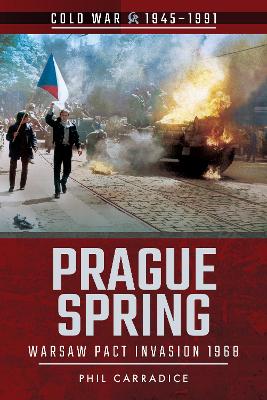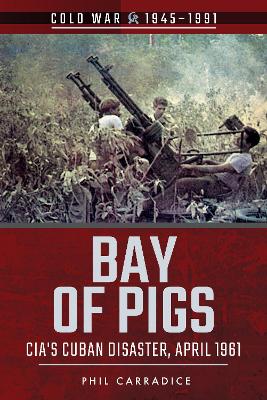Cold War 1945-1991
2 total works
Cold War nadir: January 1968 and in Czechoslovakia the new Communist Party leader Alexander Dubcek has made it clear that this is the opportunity to loosen the Soviet stranglehold on the country. As the Prague winter slowly eases into a Prague spring, it really does seem as if Dubcek has judged it right. Reforms in oppressive censorship laws, improved housing, a lessening of totalitarian oppression, Dubcek promises and delivers on it all. The new regime in Czechoslovakia does seek to destroy communism but it does want to choose its own political destiny.
And then, on the night of 20/21 August the Prague Spring is crushed by the Warsaw Pact invasion: 200,000 Communist troops, mostly Soviet but also Polish and East German, flood the country. The resulting protests and rallies against the invasion, mostly by young people, are violent and bloody. Hundreds die in clashes; self-immolation, in public and before the eyes of the world, brings home the horror and the depth of feeling in the Czech people.
It is the end of the Prague Spring, the reformation of Czechoslovakia having ended in ruins. But despite the brutal crushing of Czech hopes and dreams, the events of 1968 lay the foundations for future change. It will take another two decades but it is, ultimately, where the unravelling of the Communist bloc begins.
And then, on the night of 20/21 August the Prague Spring is crushed by the Warsaw Pact invasion: 200,000 Communist troops, mostly Soviet but also Polish and East German, flood the country. The resulting protests and rallies against the invasion, mostly by young people, are violent and bloody. Hundreds die in clashes; self-immolation, in public and before the eyes of the world, brings home the horror and the depth of feeling in the Czech people.
It is the end of the Prague Spring, the reformation of Czechoslovakia having ended in ruins. But despite the brutal crushing of Czech hopes and dreams, the events of 1968 lay the foundations for future change. It will take another two decades but it is, ultimately, where the unravelling of the Communist bloc begins.
Perhaps not in casualties but as far as prestige and standing in the world were concerned, the Bay of Pigs invasion of 1961 was the worst disaster to befall the USA since the War of 1812 when British forces burned the White House. Badly planned, badly organized, the affair was littered with mistakes from start to finish-not least with an inept performance by John F. Kennedy and his new administration.
Supposedly an attempt by Cuban exiles to regain their homeland, the whole operation was funded and equipped by the USA. When things began to go wrong with the landings at Playa Larga and Playa Giron on the southern coast of Cuba President Kennedy and his advisers began overruling military decisions with the result that the invading Brigade 2506-made up of Cuban exiles-was left with little or no air cover, limited ammunition and no easy escape.
Fidel Castro made great play of his success and American failure at the Bay of Pigs. He, like Nikita Khrushchev, thought Kennedy was weak: the Cuban Missile Crisis of the following year was almost an inevitable consequence of the disaster.
Supposedly an attempt by Cuban exiles to regain their homeland, the whole operation was funded and equipped by the USA. When things began to go wrong with the landings at Playa Larga and Playa Giron on the southern coast of Cuba President Kennedy and his advisers began overruling military decisions with the result that the invading Brigade 2506-made up of Cuban exiles-was left with little or no air cover, limited ammunition and no easy escape.
Fidel Castro made great play of his success and American failure at the Bay of Pigs. He, like Nikita Khrushchev, thought Kennedy was weak: the Cuban Missile Crisis of the following year was almost an inevitable consequence of the disaster.

